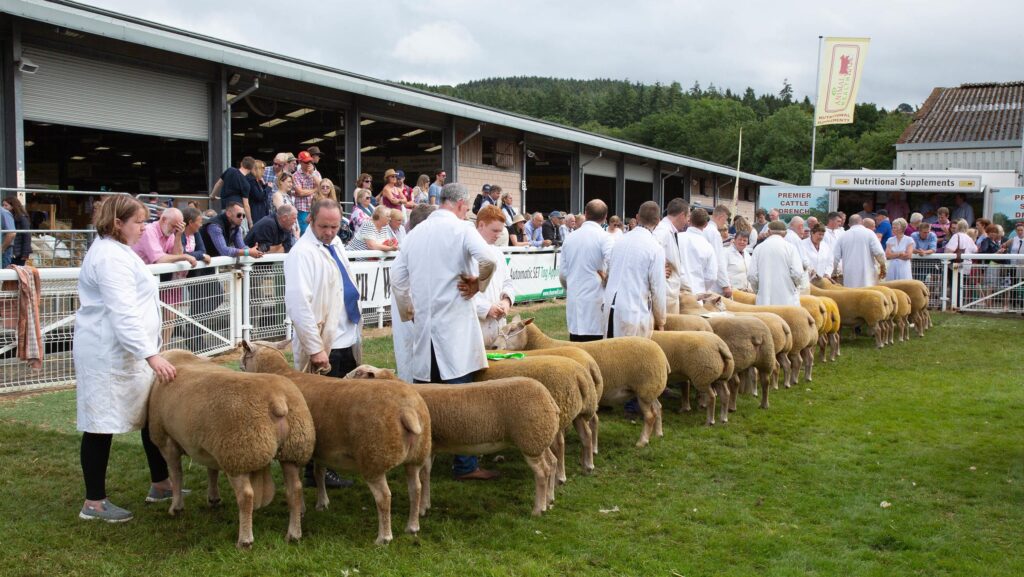Bluetongue fears sees Royal Welsh ban English and Scots stock
 © Tim Scrivener
© Tim Scrivener The Royal Welsh Agricultural Society has banned all cattle, sheep and goat entries from England and Scotland for this year’s Royal Welsh Show (21-24 July) amid bluetongue fears.
Making an announcement on social media on Monday (9 June), the society said while supporting the unrestricted movement of animals is important to them, their primary focus is to protect both their exhibitors and the integrity of the event.
While the Welsh government is expected to make an announcement on its bluetongue policy this week, the society told exhibitors that the show presents a unique risk which is distinctively different from one-day livestock markets or direct farm-to-farm movements.
See also: Farming industry calls for all-Wales bluetongue zone
In a statement, it said: “Based on the professional veterinary advice we have received, the risk of disease transmission of bluetongue [BTV] is significantly higher under these conditions.
“For this reason, we have adopted a precautionary approach and will not be accepting livestock entries from any exhibitors based within a BTV Restriction Zone (RZ), nor from those who would need to travel through an RZ to reach the show.
“The challenges of organising the Royal Welsh show are unique. This policy is a distinct showing policy and should not be confused with broader government regulations regarding animal trade and movements.”
‘Explored all options’
The society added that it had explored all available options, including pre-movement testing and unrestricted entries, but none provided the level of risk mitigation it required or proved practically workable.
Farmers Weekly understands that the policy means a reduction of 18% in sheep entries, 30% in goats, 40% in cattle and 27% for dairy cattle.
“As a regular exhibitor myself, I’m quite sure the Welsh exhibitors will make us proud this year,” said John Owen, president of the 2025 Royal Welsh Show Feature County, Caernarfon.
“We have to take the veterinary advice and we pride ourselves on science within agriculture.
“Protecting our own industry in Wales is very important to us.”
Exhibitor disappointment
The decision has been met with disappointment from some exhibitors, who fear this will have wider, long-term consequences.
Adam Lynch and his wife Katie, who are from North Warwickshire, have been exhibiting at the show for more than 20 years.
The family keep 35 Balwen Welsh Mountain breeding ewes and 40 North Country Cheviot breeding ewes on their 20ha holding and say this is their main showcase of the year.
“Not being able to show our stock here will make the sales in the autumn much more difficult as nobody will have seen our livestock.
“The impact of this decision will be far reaching,” said Mr Lynch.
This year, he added, also marks an important milestone for the Balwen Sheep Society, which celebrates its 40th anniversary.
“This is an important year for Balwen breeders and not to be at the show this year is a huge disappointment,” said Mr Lynch.
The Royal Welsh Agricultural Society says they are keeping this policy under review and should the disease situation evolve, will re-assess and adjust their approach accordingly.
